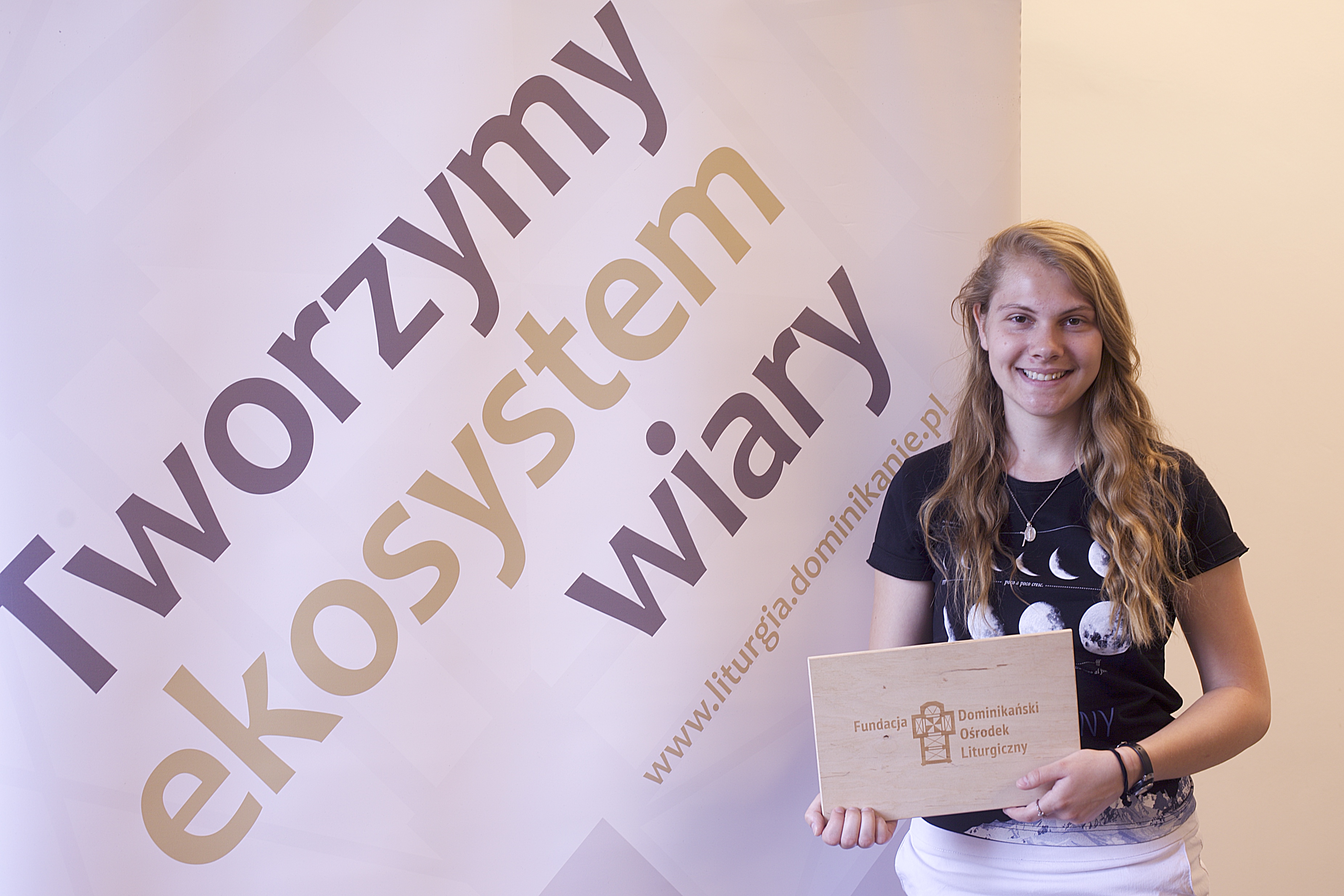Polish Dominican Liturgy through American Eyes
For the month of May, I traveled from the United States to Krakow to intern with the Dominican Liturgical Center. The following contains some reflections from this time, which I share with the hope that they might resonate with others.
Universal Beauty
During my time at the Dominican Liturgical Center (DLC), I discovered the myriad forms of the center’s specific mission. The breadth of their projects illustrates many ways to further liturgical knowledge and renewal. Each way stems from grace, prayer and discovery, rooted in the search for Truth and Beauty.
Thanks to the presence of Polish Dominicans in Salt Lake City, Utah, the Polish Dominican liturgical style was not foreign to me. Yet, through my time in Poland, I began to understand the roots of liturgical revival and the Dominican style’s capacity to inspire millions. The more I learned about the DLC, the more I wanted to extend their work. Their mission greatly resonated with me; such work is paramount, not only in Poland but also abroad, as their mission can truly revive hearts and communities.
I have long been convinced that there is a great need for liturgical beauty—such beauty has the ability to uplift and comfort souls—yet it is often hard to meet such needs. I have been blessed to see so many who remain undiscouraged when facing difficulty.
One of the most striking things about liturgical beauty is its universal nature. The Mass is universal, recalling an eternal sacrifice. There is great wonder in celebrating the Eucharist as part of a community that transcends all time and all boundaries. I was reminded that such a community cannot be contained within one church, diocese, country or religious order. I was able to offer praise during the liturgy with the same music I know in my mind and heart, despite the fact that I was in Poland, and not the United States. In these moments of prayer, I saw a small fragment of the beauty of the Eucharist.
Gloria Tibi, Domine. Music—of the voice, as well as the wordless music of the heart—is transformed when it is offered as a prayer.
It is the liturgy that transcends and unites. In the past few weeks, I have witnessed a quiet beauty in the liturgy. I have been welcomed and shown great kindness. I am overjoyed to know that these acts of compassion are only small reflections of God’s love.
Environments of Faith
Environments of faith began with encounters. Sometimes these encounters are simple—a turn down a new street, or a moment of trust in a friend. These communities develop powerfully—sometimes quickly, sometimes over lengths of time. Each faith environment contains the capacity to support spiritual growth.
I was struck by the animation of the faith communities I found in Poland. Places of worship are many, magnificent, and filled. It is not odd to encounter religious when walking around Krakow. The city has the imprints of saints. There was much life and joy.
This joy took many forms. I am grateful to have had the opportunity to discover and extend the efforts of a compassionate, dedicated team that works to increasing the number of informed participants in the liturgy. I am grateful to have witnessed thousands of believers contemplate and praise God. I am grateful to have participated in a celebration of Holy Orders during which the Church welcomed seven priests.
Nevertheless, one recognizes that each part of the Church experiences challenges, in different regional contexts. Through my experiences and conversations, I have been better able to recognize strengths, as well as areas which could be improved, both within the Church in the United States and in Poland. The faithful can offer support regardless of their positional distance–in times of strength, and in times of struggle.
Environments of faith leave indelible marks. When leaving such a community, I find hope in the thought that faith-filled encounters strengthen all involved. I am grateful to have been given a window into the Church in Poland, and to be able to reflect on the transcendent nature of faith.
As a traveler, I recall Hebrews 11:14,16, “All these people died having faith… they acknowledg[ed] that they were strangers and foreigners on earth. They were longing for a better country, that is, a heavenly one.”
Through travel, one can recognize that growth is more needed than comfort. Leaving our community can remind us that no home can replace a home in Christ. Along the journey, we can take inspiration and guidance from those we meet, as well as find support in prayer. It is good to expand our vision, as well as to remember the encounters that strengthen us.
Related articles
-
zDOLni – Episode Six: A Benedictine, a...
Although it starts like a good joke, this conversation is pretty serious. The three religious... więcej
-
zDOLni – Episode Five: Where Does the...
In this episode we’re asking about the origins of Christian liturgy, whether I can evolve,... więcej
-
Dawid Kusz’s OP “Jutrznia Paschalna” (Pascha Lauds)...
One of the leading composers of liturgical music in Poland, a Dominican father Dawid Kusz... więcej
























